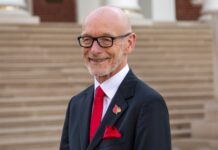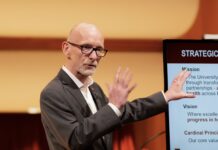Most of us are too busy to slow down and appreciate experiences like these; our minds are endlessly active, drawing us into the past and future, seldom resting in the present moment. In response to this often frenetic pace of life, many people are increasingly turning to meditation and other contemplative practices that offer an appealing respite. Mindfulness is a word that increasingly crops up in this context. It is rooted in the Buddhist tradition of vipassana or ‘insight’ meditation, a contemplative practice undertaken to cultivate clear perception of the nature of reality.
Mindfulness is a state of alert attentiveness to one’s experience on a moment-by-moment basis, strongly anchored in the present moment. It is strongly embedded in a system of values that advocates compassionate care for oneself, for others and for the world we live in. All of these elements are viewed as interconnected, reflected in meditation teacher Jack Kornfield’s observation, “Tending ourselves, we tend the world. Tending the world, we tend ourselves.”
Recently mindfulness has made inroads into many facets of contemporary society, catalyzed in large measure by the work of Jon Kabat-Zinn, who in the 1980s developed a stress management program for medical patients at the University of Massachusetts Medical Center. Known as the Mindfulness-Based Stress Reduction (MBSR) program, it is now offered at hundreds of clinics and health care centers. The essence of the MBSR program is on helping people whose lives are filled with stress to focus their attention in the present moment, in a non-judgmental way. Kabat-Zinn found that mindfulness practice could help medical patients deal with the stresses created by their illnesses by learning to live fully in the present, rather than constantly focusing on thoughts and feelings related to events of the past or future.
The MBSR program focuses in large measure on inner experience — on the rich array of thoughts, feelings, physical sensations, and other mental phenomena that inhabit conscious awareness and exert a strong influence on our behavior. However, despite its omnipresent nature, for most people this inner landscape gets surprisingly little conscious attention. One of the earliest realizations that typically comes from mindfulness practice concerns the degree to which these inner aspects of consciousness can directly influence our behavior. It’s as if our thoughts (in particular), comprise a form of ‘virtual reality,’, in which we act according to what we think is going on, rather than being fully aware of what is actually happening. We often miss things that are happening right in front of us because our minds are seldom focused in the present. This lack of attention can lead us to treat ourselves, others and the environment in careless and reactive ways that potentially can do great harm. Stephanie Kaza, author of “Mindfully Green,” put it this way: “Much of our ignorance about environmental degradation is the result of not seeing, not smelling, not tasting, not hearing, and not feeling the deeper impacts of environmental suffering. We are too busy or perhaps too afraid to pay attention what is going on.” (p. 19)
Mindfulness practice offers an antidote to this habitual, non-conscious, reactive mode of behavior. In addition to formal sitting meditation, the practice involves bringing mindfulness to basic activities of daily life, such as eating a meal; conversing with another person or driving a car. Uniformly, people comment that bringing their undivided attention to whatever they are doing, or whatever they choose to focus on, adds a rich sense of immediacy to the experience. The awareness that comes from paying attention in the present moment helps us become more tuned in to our own lives and those of others. Mindful awareness is a powerful tool that that lead to skillful action on behalf of ourselves, residents of the planet and the environment, if we will only take the time to stop and pay attention!
(Editor’s Note: Lessening its carbon footprint is an ongoing UofL goal. Green Scene contributors are working in different areas to help meet that goal.)


























